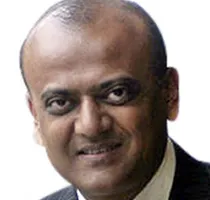"
The
wiki entry for Delhi chief minister throws up two important facts:
1. Delhi got its first chief minister, Chaudhary Bramha Prakash, way back in 1952. Prakash was succeeded by on GN Singh in 1955, but he survived only for one year. Imp: Both belonged to the Congress party.
2. For the next 37 years, until 1992, Delhi was under President's rule.
Madanlal Khurana in 1993 became CM thanks to the 'Government of National Capital Territory of Delhi Act,' enacted to give a little more autonomy to Delhi. The BJP man was succeeded by two back-to-back CMs from his own party, Saheb Singh Varma and Sushma Swaraj. The BJP has been unable to regain the state after 1998.
The import of these two facts is obvious.
a) Brahma Prakash and GN Singh lived under the giant shadow of Jawaharlal Nehru and never really dared to demand operational control of the police. In fact, the Delhi Legislative Assembly itself was short-lived, constituted as it was in 1952, it met with an unspectacular end in 1956!
b) And when it came to their time (1993-1998) Khurana, Verma and Swaraj made noises that Delhi Police must come under their command but they neither had the political will nor the central government of their own party to get their way.
Then came Sheila Dikshit, who ruled for 15 years until last month but who never quite pressed the pedal hard enough to annex direct control - whether under the National Democratic Alliance, which was in power from 1999-2004, nor when her own coalition, the United Progressive Alliance, has been on the driver's seat since 2004.
The only time Dikshit expended some political capital on the subject was when the nation turned against her following the gangrape and assault on December 16, 2012 - but, needless to say, Dikshit was too urbane to risk a street fight with the ministry of home affairs (MHA).
Juxtapose this entry with the one on Delhi Police (DP). Two basic facts are of interest (read
here):
1. DP started the post-independence era reporting to Punjab Police. In 1948, they got their own identity an inspector-general of police (IGP) called DW Mehra. The force was reorganised in 1966 and the position of commissioner of police-CP (which essentially meant more autonomy for the Indian Police Service-IPS from the traditional stranglehold of the Indian administrative service-IAS) came its way in 1978.
Ever since, several supernumerary posts have been created at the top (three special commissioners of the rank of additional director-general of police, 17 joint commissioners equivalent to IGP) and the police commissioner himself (no ladies here yet!) elevated to the 'apex scale.' This makes the CP comparable to a secretary to government of India (Mehra, as any IGP, was equated to a joint secretary only).
2. The reporting structure of DP has remained a melange of superintendence. The MHA, swamped as it is with a million headaches across the country, exercises overarching control. And the writ is exercised jointly by the union home secretary and the lieutenant governor of the national capital territory, who has otherwise a ceremonial function!
Clearly, the police commissioner hasn't had much time to waste over the CM, the chief elected representative accountable to Delhi's citizens.
Is it surprising that given the dodgy historical underpinnings of a schizophrenic command and control structure, the Delhi CM has now taken to the streets?
The argument is simple: Each time there's a rape or blast in Delhi, the mango man (and even OB vans!) turn towards the Delhi CM, not the union home minister, for an answer. This is because in any other place in the country, it's the CM who takes the blow for the performance of his DGP or police commissioner. Hardly 1 percent people know and care that Delhi is the only exception.
Before jumping to a lock-stock-and-barrel (pun unintended!) transfer of DP to current CM Arvind Kejriwal (or his successor, as the case may be), the home ministry should figure an elegant way out to retain its direct writ over the diplomatic enclave and, perhaps, Parliament and Lutyens' Delhi. But this imperative can't come in the way of arrogating for itself the direct responsibility of thousands of petty burglaries, traffic violations, and crime-as-usual every day.
That we now have a CM who desperately wants to control the functions of Delhi Police, and who wants to make them accountable to the elected executive, not a remote Sushil Kumar Shinde. The MHA should wake up and smell the coffee.
How about a one-man commission, under the chairmanship of an experienced IPS officer like Prakash Singh? It's a no brainer why Singh fits the bill: he is considered one of the 'dadas' of the police force, and being from Uttar Pradesh has no an axe to grind for his juniors in the Union Territory cadre.
If Singh agrees, and I hope he will, a structure separating ordinary policing across NCT (that affects us the common citizen) and sensitive diplomatic duties of a Lutyens' nature can be created in a phased and time-bound period. The reason I suggest Singh is also because he has piloted the pioneering public interest litigation on police reforms (read
here) - a fundamental initiative backed the Supreme Court since 2006.
PS: All states have to revert to the apex court on implementation of its directive regarding superintendence of chief ministers over the three all-India services following the verdict secured by cabinet secretary TSR Subramanian (read it
here).
(The writer is a Visiting Fellow at Observer Research Foundation, Delhi).
Courtesy: Governance Now magazine
"
The views expressed above belong to the author(s). ORF research and analyses now available on Telegram! Click here to access our curated content — blogs, longforms and interviews.




 PREV
PREV


